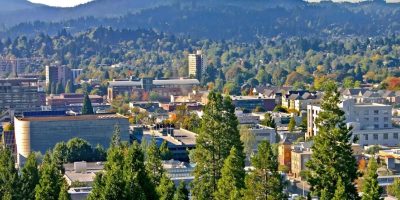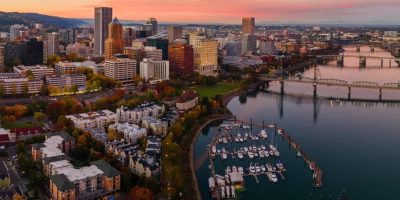Moving to Oregon

Our Moving Services for Oregon
Long Distance Moving: Moving to Oregon from another state requires careful planning and execution. Our long-distance moving services handle every aspect of your relocation, ensuring your belongings are packed, transported, and delivered safely to your new Oregon home.
Commercial and Office Relocation: If you’re relocating your business to Oregon, our commercial moving services are designed to minimize downtime and ensure a seamless transition. We handle everything from packing and transporting office equipment to setting up your new workspace.
Residential and Apartment Moves: Whether you’re moving to a single-family home, a downtown apartment, or a suburban condo, our residential moving services cater to your specific needs. We offer professional packing, loading, and unloading services to make your move as smooth as possible.
Last Minute Moving Services: Sometimes life throws unexpected challenges your way, and you need to move quickly. Our last-minute moving services are here to help you relocate to Oregon efficiently, even on short notice.
Flat Fee Moving Services: Budgeting for a move can be challenging, but our flat fee moving services provide transparent pricing with no hidden fees. You’ll know exactly what to expect, allowing you to plan your move to Oregon with confidence.
Furniture Moving: Whether you’re moving an entire household or just a few key pieces, our furniture moving services ensure that your items are handled with care and arrive in perfect condition. We specialize in transporting delicate and valuable items, ensuring they make it to your new Oregon home safely.
Why people are moving to Oregon
Oregon has become a popular destination for those looking to relocate, and for good reason. The state offers a high quality of life, access to nature, and a thriving cultural scene. But what is Oregon like, and why are people moving to Oregon in such numbers? Here are some of the key reasons:
Natural Beauty: One of the most compelling reasons to move to Oregon is its incredible natural beauty. From the iconic Crater Lake to the dense forests of the Cascades, Oregon offers a diverse landscape that appeals to outdoor enthusiasts. Whether you enjoy hiking, skiing, surfing, or simply exploring nature, Oregon provides endless opportunities to connect with the great outdoors.
Cultural Vibrancy: Oregon is home to a vibrant cultural scene, particularly in cities like Portland and Eugene. Known for its progressive values, Oregon offers a rich mix of arts, music, and culinary experiences. Portland, in particular, is famous for its food carts, craft beer, and eclectic neighborhoods, making it a hub for creativity and innovation.
Environmentally Conscious Living: Oregon is a leader in environmental sustainability, with a strong emphasis on green living. The state’s commitment to preserving its natural resources and promoting eco-friendly practices attracts people who value a sustainable lifestyle. Whether it’s biking to work, supporting local farms, or participating in conservation efforts, living in Oregon often means embracing an environmentally conscious way of life.
Quality of Life: Oregon consistently ranks high in quality of life metrics. The combination of natural beauty, cultural richness, and a slower pace of life makes it an appealing place to settle down. The state also boasts excellent healthcare, good schools, and a strong sense of community, making it a great place for families, retirees, and young professionals alike.
Economic Opportunities: While Oregon’s economy has traditionally been driven by agriculture and timber, it has diversified significantly in recent years. The state is now a hub for technology, healthcare, and education, particularly in the Portland metropolitan area. The presence of major companies like Nike, Intel, and Columbia Sportswear provides ample job opportunities, while the growing tech sector has earned Portland the nickname “Silicon Forest.”

Pros and Cons of Living in Oregon
As with any state, living in Oregon has its advantages and disadvantages. It’s important to consider these pros and cons before making your decision to move to Oregon.
- Stunning Natural Scenery: Oregon’s diverse landscapes, from the Pacific coastline to the high desert, offer something for everyone. The state’s natural beauty is a major draw for residents and visitors alike.
- Thriving Cultural Scene: Oregon’s cities, particularly Portland, are known for their vibrant arts and culture. With a rich mix of music, theater, and culinary arts, there’s always something happening.
- Eco-Friendly Lifestyle: Oregon is at the forefront of environmental sustainability. Residents enjoy a lifestyle that prioritizes green living, from extensive recycling programs to a strong emphasis on renewable energy.
- Mild Climate: Oregon’s climate is generally mild, with cooler temperatures in the western part of the state and warmer, drier conditions in the eastern regions. This makes it a comfortable place to live year-round.
- No Sales Tax: One of the financial benefits of living in Oregon is the absence of a state sales tax. This can lead to significant savings, particularly on large purchases.
- High Cost of Living: While Oregon offers many benefits, the cost of living, particularly in cities like Portland, can be high. Housing costs have risen significantly in recent years, making it more expensive to buy or rent a home.
- Rainy Weather: Oregon is known for its rainy seasons, especially in the western part of the state. While the rain contributes to the lush greenery, it can be a downside for those who prefer sunnier climates.
- Traffic and Congestion: As more people move to Oregon, particularly in the Portland area, traffic congestion has become a growing issue. Commuting times can be long, and public transportation options, while available, may not meet everyone’s needs.
- Limited Diversity: While Oregon’s population is becoming more diverse, it is still less so compared to many other states. This lack of diversity can be a downside for those seeking a more multicultural environment.
- Wildfire Risk: In recent years, Oregon has seen an increase in wildfires, particularly in the summer and early fall. This is a growing concern, particularly for those living in more rural or forested areas.
Cost of Living in Oregon
Housing Costs: Housing is one of the most significant expenses in Nevada, but it remains more affordable than in many neighboring states. In cities like Las Vegas and Reno, home prices have been rising, but they are still lower than in major California cities. Renting is also a more affordable option, with a wide range of properties available at different price points.
Utilities: Nevada’s desert climate means that utility costs, particularly for air conditioning, can be high during the summer months. However, the state’s mild winters help offset some of these costs. Overall, utilities in Nevada are comparable to the national average.
Transportation: Nevada’s gas prices are generally around the national average, and while public transportation is available in larger cities, most residents rely on personal vehicles. Car insurance rates in Nevada are also relatively high, particularly in urban areas.
Groceries and Dining: The cost of groceries and dining out in Nevada is similar to the national average, though it can be slightly higher in tourist-heavy areas like Las Vegas. The state’s diverse food scene offers everything from affordable local eateries to high-end dining experiences.
Popular Destinations

Moving to Oregon costs
Moving to Oregon involves several costs, particularly if you’re relocating from out of state. Here’s what you can expect:
Moving Company Costs: The cost of hiring a moving company in Oregon can vary depending on the distance of your move, the volume of your belongings, and the services you require. On average, local moves within the state can range from $500 to $2,000, while long-distance moves can cost upwards of $3,000 or more.
Packing Supplies: Don’t forget to budget for packing supplies, such as boxes, tape, and bubble wrap. These costs can add up, especially if you have a lot of fragile items.
Travel Expenses: Depending on where you’re moving from, you may need to budget for travel expenses, including gas, flights, or accommodations during your journey.
Temporary Housing: If your new home isn’t ready by the time you arrive, you may need to arrange for temporary housing, which can be an additional expense.








![local movers in [City] local movers in [City]](https://unitedlocalmovers.com/wp-content/uploads/elementor/thumbs/local-movers-in-City-rj6z70ii1a4awlun6ubh8rd3n7tif0jfillzrg9hao.jpg)